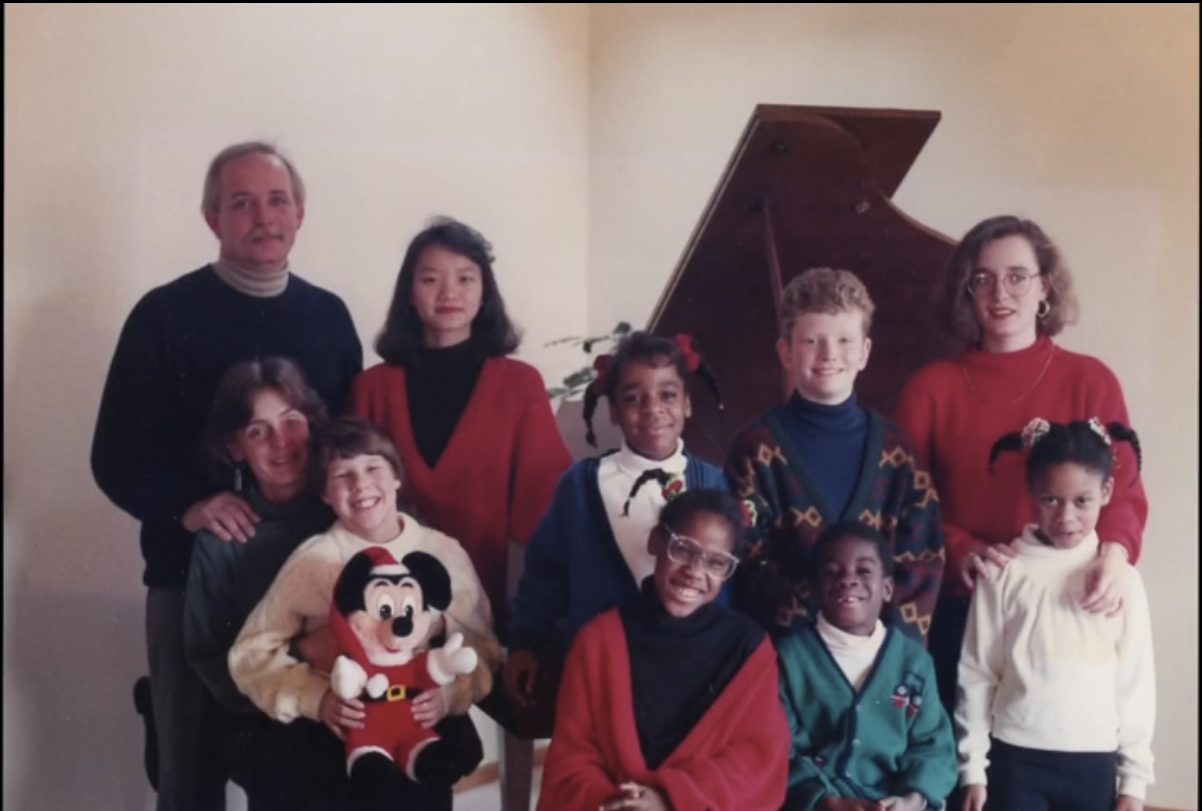Earlier this month, Melissa Harris-Perry stirred up outrage when she and two guests on her eponymous MSNBC show (Pia Glenn and Dean Obeidallah) “mocked” the adopted black grandson of Mitt Romney. The backlash was swift, with Harris-Perry—and to a lesser extent, her guests—labeled a “racist” by some on the right. Others shifted the focus from her remarks to discuss the tepid relationship Romney and the Republican party have with people of color, and what that says about how race is confronted in America today.
Missing from much of the conversation was what the experience of transracial adoption is actually like. Such adoptions can present a tricky path for parents and children alike. For many of us who haven’t walked those steps, a more personal account can be quite illuminating.
Closure, a documentary that made the festival rounds last year and is now available to stream, sets out to show one such perspective. Director Bryan Tucker follows his wife Angela, a child of transracial adoption, as she embarks on a search for her birth mother. That narrative comprises a large portion of the film, and there are emotional and genuinely surprising moments as Angela makes phone calls to potential long-lost relatives and struggles with the fear of rejection.
But just as moving, and perhaps more revealing in light of the Harris-Perry controversy, are the candid interviews with Angela’s adopted family members. (She comes from a fairly large household: Parents David and Teresa, who are white, had one biological child, and adopted seven other children of various ethnicities, some of whom had special needs.)
David and Teresa provide a glimpse of what it was like to raise a multicultural family in the predominantly white city of Bellingham, Wash. Teresa recounts the probing questions she’d get while out with the kids; people would ask where they were from, she says, and “You could just tell they wanted to say, ‘Are they from Africa?’ ” Home video footage features David behind the camera and a young Angela in the frame standing beside an old man who asks, “How’d you get ’em?” David half-jokes: “Oh, you know you walk down the street, and it’s like a magnet.”
There are no mentions of out-and-out racism—just subtle, seemingly uncomfortable interactions with strangers who don’t know what to make of their children’s outward appearance.
The family seems to have blended well, and Angela’s brother Kyle, who is black, remembers their mother encouraging them to “embrace [their] heritage.” (Though he admits to preferring, as a kid, “to be raised as the whites.” Closure delves briefly into his own struggles with identity, which Kyle handled quite differently from Angela.) But there was a bit of pushback from some family members when Angela announced she wanted to search for her birth mother. Her sister Elena, the biological child of David and Teresa, explains her trepidation, acknowledging that she felt a bit “insulted” and wondered why their parents weren’t “enough” for her sister.
Other adoptive families experience this, of course, regardless of whether or not all the members have the same racial background. But that additional wrinkle does change things:
“I remember one comment Angela made about how people would always say, ‘Oh you [Elena] look just like your dad,’ and she had to go through life not ever hearing that. And that just makes you understand, you know, a small part of … where that need comes from.”
Tucker says he felt a similar disconnect with Angela during the early stages of their search. “I sort of got it, I understood it, knowing that she was raised by white parents, in a very white town. I knew that there had to been this innate desire for her to connect with her roots … but I think I underestimated how strong that desire was.”
For Angela, locating her birth family isn’t just about finding her roots, but also having a chance to seek out a part of her culture she felt she missed out on while growing up in a predominantly white environment. As has been said before, what’s often missing in the country’s conflicts with race is empathy. Both of these moments, as well as others in the film, show that even those from loving transracial families have to make a conscious effort to understand this aspect of their relatives’ identities.
Harris-Perry has identified herself as a black child “born into a large white Mormon family” (her father is black and her mother is white).* And as Richard Kim points out in the Nation, she’s hosted intelligent, non-partisan discussions about the subject in the past, most notably in a segment titled “When your children are black and you’re not,” which ran shortly after the George Zimmerman verdict. Outside of the Romney dust-up, she has done quite a bit of what Closure does so well: bring personal experience to bear on a topic that can be difficult for the rest of us to talk about.
Correction, Jan. 24, 2014: This post originally misstated that Harris-Perry is a child of transracial adoption. She comes from a biracial family; her mother is white and her father is black.
